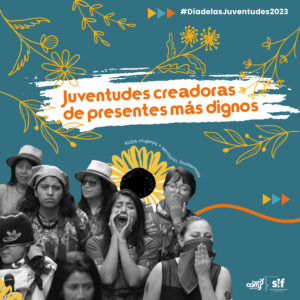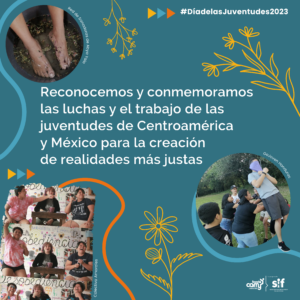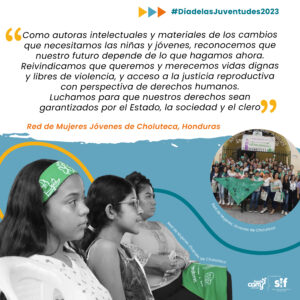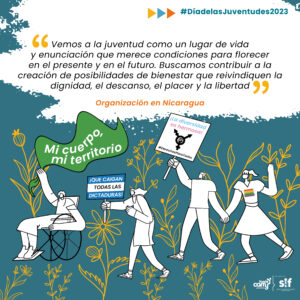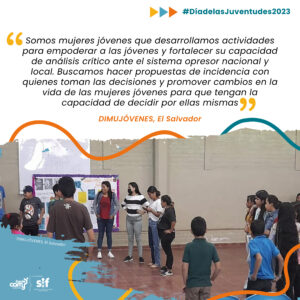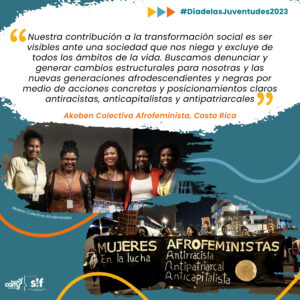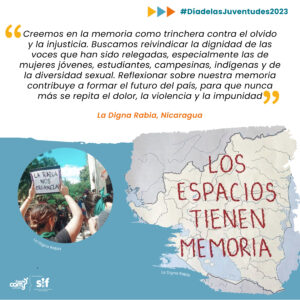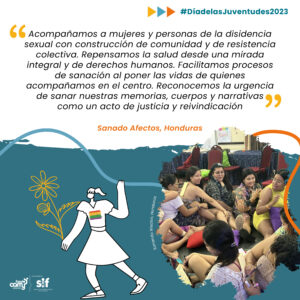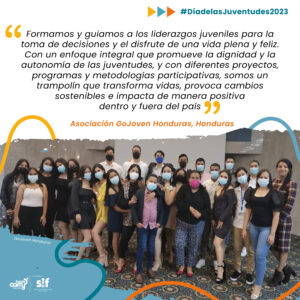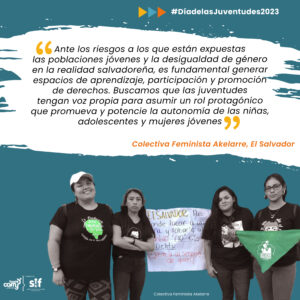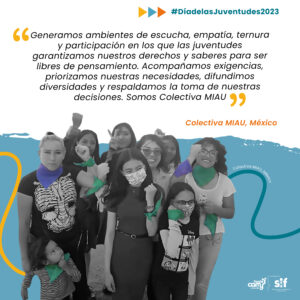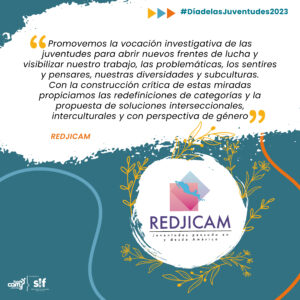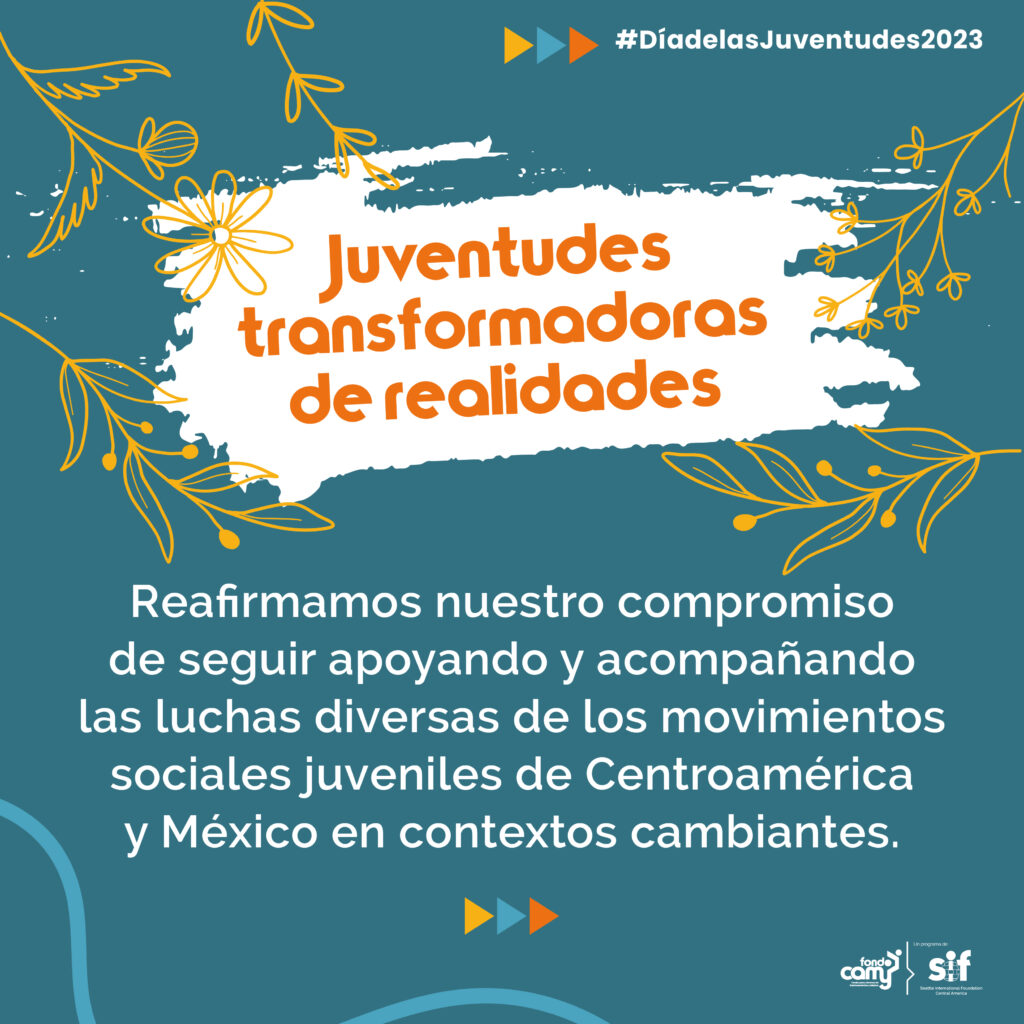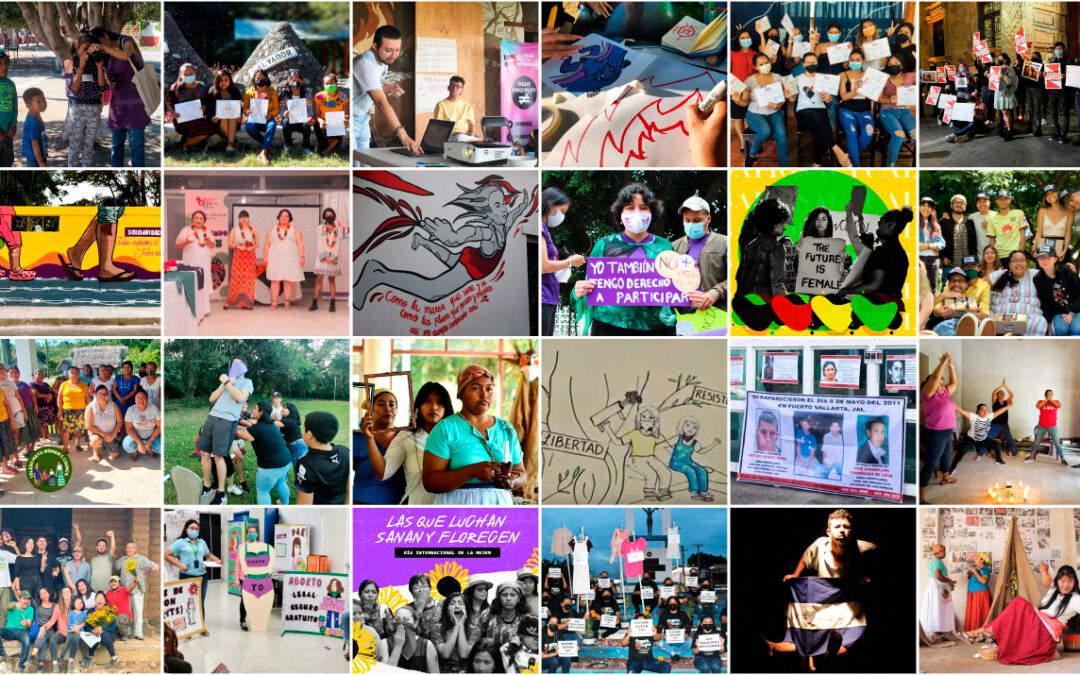This year, we have reflected on what is the key element in commemorating International Youth Day, and agreed that it is essential to recognize and increase visibility of the importance of work carried out by young people in transforming our realities and ensuring recognition of human rights. Centering the idea of recognition on this day means highlighting the work of young people facing diverse and complex contexts in Central America and Mexico, which is in constant change.
After the pandemic, country contexts across the region are not encouraging. Economic crises have deepened in the region, increasing the levels of inequality, violence and poverty. Migrant caravans to the United States continue. The governments of El Salvador and Honduras have implemented severe measures, including states of emergency that restrict citizens’ constitutional rights, and other punitive actions. Guatemala is experiencing an electoral crisis that underscores the authoritarianism, corruption and racism of its authorities. In Nicaragua, the regime continues with the persecution and revocation of legal registrations of civil society organizations. Mexico is entering a polarized electoral period that is not addressing the country’s problems and needs. In Costa Rica, freedom of expression and institutionalism have been threatened by the rise of authoritarian practices.
In spite of this adversity, young people’s resilience and capacity to generate hope even in the most unlikely, violent and hostile scenarios never ceases to amaze us. We recognize that the work of young people contributes to humanizing the fight led by and for the people to resist authoritarianism and recognize rights. This recognition helps us to see beyond the setbacks and challenges and to find new paths of resistance.
Recognition also implies valuing young people for what they are today, not for their past or what they will be in the future. It means implementing actions that support young people as political subjects and rights holders. A commitment to youth considers the value of both the processes of strategy development and its results and puts the voices and needs of young people at the center. It seeks their participation not only in economic development, but also in social, cultural, emotional and community changes in which there are many definitions of youth.
Young people’s experiences are diverse, and SIF’s Central America and Mexico Youth Fund (CAMY Fund) values the knowledge and ideas emerging from their different contexts, backgrounds, and perspectives. The great transformations needed in the region are germinating through them. We also support youth based on non-adult-centered values and principles and are committed to providing flexible funding for youth-led organizations that form part of social movements, along with a non-financial accompaniment that is tailored to address the technical and institutional needs and demands of their realities and that integrates trust, autonomy and collective care.
As part of our commemoration of International Youth Day during the month of August, we spoke with some of our partner organizations in Central America and Mexico about the importance of their work to make spaces where youth can live with dignity and autonomy. Nazareth Cruz, a volunteer at GoJoven Honduras, shared that her organization aims to create spaces where young people feel safe and that their contribution “is to provide new knowledge to raise awareness and help young people recognize themselves as free, autonomous and capable of making their own decisions.”
We will be running a campaign for the first two weeks of August on our social networks that will incorporate perspectives of youth-led organizations. Below are some of the included testimonials:
Colectiva Akelarre, El Salvador: “In light of the risks to which young people are exposed and the gender inequality in the Salvadoran reality, it is essential to create spaces for learning, participation and promotion of rights. We aim for young people have their own voice to assume a leading role in promoting and empowering the autonomy of girls, adolescents and young women.”
Akoben Colectiva Afrofeminista, Costa Rica: “Our greatest contribution to social transformation is being visible before a society that denies and excludes us from all areas of life, and from concrete actions and with a clear political positioning as anti-racist, anti-capitalist and anti-patriarchal, we try to denounce and generate structural changes for us and the new Afro-descendant and black generations”.
We thank the young people who shared their work and different experiences and to our colleague Diana Campos, who provided significant support and with whom we have written this blog.
